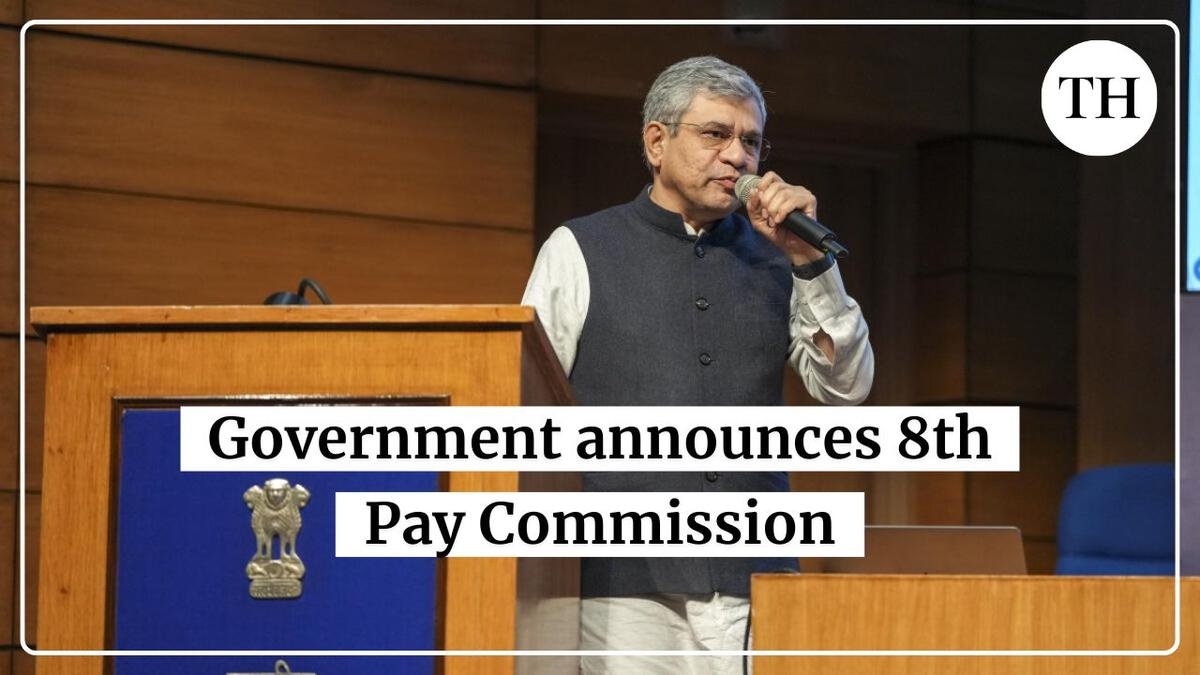
Government Announces Eighth Pay Commission Ahead of Delhi Assembly Polls
Days prior to the Delhi Assembly elections, the Union government has sanctioned the formation of the Eighth Pay Commission, addressing longstanding demands from central trade unions and employee organizations. This decision, announced during a Cabinet meeting on January 16, 2025, aims to revise salaries and pensions for approximately 50 lakh current employees and 65 lakh retired personnel, including defense veterans. Delhi alone hosts around four lakh Union government employees. Union Information and Broadcasting Minister Ashwini Vaishnaw confirmed Prime Minister Narendra Modi’s directive to initiate the commission, emphasizing its role in enhancing consumption and economic growth. The move is expected to provide a significant uplift to the living standards of government workers, with the commission’s recommendations serving as a benchmark for public sector wage settlements and state-level revisions.
Historical Context and Commission Structure
The Eighth Pay Commission’s establishment marks the first such review since the Seventh Commission’s 2016 report, which led to a ₹1 lakh crore expenditure surge in 2016-17. While the Seventh Commission’s term ends in 2026, the government opted to launch the new process in 2025 to allow ample time for consultations and implementation. Typically chaired by retired Supreme Court judges, the new panel will include two members, with appointments pending. This approach ensures the recommendations align with evolving economic realities, such as rising healthcare and education costs, and internet dependency, which were highlighted by trade unions as critical factors in determining a ‘living wage.’
Trade Union Reactions and Stakeholder Engagement
Central trade unions have welcomed the decision, though they stress the need for clarity on concepts like ‘living pension’ and ‘living wage.’ C. Srikumar, a representative of the All India Defence Employees Federation, noted that employees have been advocating for this commission for over a year. He emphasized that current wage formulas, based on a 1957 nutritionist model, are outdated given modern living costs. The Bharatiya Mazdoor Sangh (BMS) praised the government’s commitment to workers, while the Central Secretariat Service Forum (CSS Forum) commended the move as a progressive step for Central Government employees. The commission’s consultations with Union and state governments will ensure stakeholder input before finalizing recommendations.
Economic Implications and Fiscal Considerations
Policy experts warn that the 10-yearly salary and pension revisions could strain fiscal space, as seen in the 9.9% revenue expenditure growth in 2016-17. D.K. Srivastava of Ernst and Young highlighted that similar increases in 2026-27 may impact capital expenditures, which are vital for infrastructure and development. Despite these concerns, the government maintains that the revisions will bolster consumption and economic growth. The timing of the commission’s launch, ahead of the Delhi elections, underscores its strategic importance in addressing employee welfare while aligning with broader fiscal planning. As the commission progresses, its ability to balance employee demands with economic realities will be pivotal to its success.




